$10 Million Gift to Name and
Expand the Impact of the
Anne and John McNulty
Leadership Program at Wharton
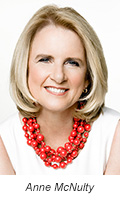 The Wharton School of the University of Pennsylvania is delighted to announce a $10 million commitment from Anne Welsh McNulty (Wharton MBA Class of 1979), which will drive the expansion and global reach of the current Wharton Leadership Program, building on a foundation of over 20 years of innovation and impact in leadership development. In recognition of this transformative gift, the Wharton Leadership Program will be renamed the Anne and John McNulty Leadership Program at the Wharton School.
The Wharton School of the University of Pennsylvania is delighted to announce a $10 million commitment from Anne Welsh McNulty (Wharton MBA Class of 1979), which will drive the expansion and global reach of the current Wharton Leadership Program, building on a foundation of over 20 years of innovation and impact in leadership development. In recognition of this transformative gift, the Wharton Leadership Program will be renamed the Anne and John McNulty Leadership Program at the Wharton School.
“We are honored to be able to announce Anne’s amazing gift to the McNulty Leadership Program,” said Wharton Dean Geoff Garrett. “Anne and John have shaped the history of Wharton and made a lasting impact on students by preparing them to lead and change the world. Wharton is deeply grateful for this gift, which embodies the McNulty family’s steadfast commitment to leadership.”
The McNulty Leadership Program at Wharton memorializes Mr. McNulty’s legacy of bold impact and the McNultys’ sustained passion for preparing individuals to lead in their fields and communities. Under its new name, the McNulty Leadership Program at the Wharton School will elevate the School’s approach to leadership learning and development. The Program maintains a holistic approach to coursework, coaching, mentoring and experiential learning for students of all ages, instilling in them the tools needed to adapt their leadership styles through action, reflection and experience and to become global leaders of diverse workforces.
“This inspired gift from Anne and the McNulty Foundation gets to the core of what we do at the University of Pennsylvania,” said Penn President Amy Gutmann. “Penn inspires enormously talented students along with many members of our University community, encourages them to challenge themselves to make a positive difference in the world and provides an environment where they can take risks and grow to become their best possible selves. Anne will continue to change lives through her generosity and the Anne and John McNulty Leadership Program at the Wharton School.”
“I believe in the transformative power of developing each individual’s leadership capacity. Wharton’s Leadership Program is uniquely poised to make a real impact that will multiply from its students to businesses and communities and beyond,” said Mrs. McNulty. “Wharton was a turning point in our lives,” she reflected on their experience at the School. “It challenged us to think differently and taught us to be more thoughtful and more ambitious. Our time at Wharton motivated us to be active leaders, not only in running businesses, but also in our communities. It is a pleasure for me to support future students so that they may have a similar experience, so that they may reach their potential and so that they may change the world through the lessons they learn at Wharton.”
This gift marks a new chapter in the McNulty family’s legacy of leadership at the Wharton School, throughout Philadelphia and across the globe. The McNulty Foundation is investing generously in higher education and leadership development in the Philadelphia region, including grants to Villanova University and St. Joseph’s University in addition to the University of Pennsylvania. The Foundation awards the annual the John P. McNulty Prize to young leaders pioneering creative, sustainable market solutions to seemingly intractable problems in communities around the world.
“This major investment will accelerate and expand the impact of Wharton’s premier leadership development initiative by providing support for new program development and the adaptation of popular programs—like the Wharton Leadership Ventures and the Executive Coaching and Feedback Program—to new student audiences and the general public. We’re so grateful to enlist Anne and the McNulty Foundation as both a supporter and a partner in this next phase,” said Jeff Klein, executive director of the newly named McNulty Leadership Program at Wharton.
Prior to his untimely passing, Mr. McNulty was a historic figure at Goldman Sachs. He rose through the ranks, named first as a partner and then as co-head of the Asset Management Division, and later leading its newly created Investment Management Division. Throughout, he was a dedicated mentor to young associates, many of whom have since risen to leadership positions in the industry. He served on Wharton’s Graduate Executive Board, on the Board of Trustees at Saint Joseph’s University and as a board member of the New York University Child Study Center. He earned his undergraduate degree from Saint Joseph’s University and his MBA (in 1979) from the Wharton School.
Mrs. McNulty is the co-founder and managing partner of JBK Partners, with businesses ranging from investment management to a private philanthropic foundation. She was previously a managing director at Goldman Sachs and a senior executive of the Goldman Sachs Hedge Fund Strategies Group. She is a current member of the Board of Overseers at the Wharton School, a member of the Wharton Leadership Advisory Board and a past member of the Undergraduate Executive Board. In addition to her leadership engagements at Wharton, she serves as a trustee of the Aspen Institute and the Metropolitan Opera of New York, and a member of the Boards of Directors of both the Child Mind Institute in New York and the National Museum of American Jewish History in Philadelphia. She is a former trustee at Villanova University, where she was valedictorian of her class.
Aviv Nevo Appointed Penn Integrates Knowledge Professor
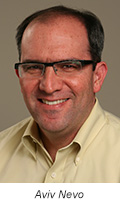 Penn President Amy Gutmann and Provost Vincent Price announced the appointment of Aviv Nevo as the University of Pennsylvania’s seventeenth Penn Integrates Knowledge University Professor, effective July 1, 2016.
Penn President Amy Gutmann and Provost Vincent Price announced the appointment of Aviv Nevo as the University of Pennsylvania’s seventeenth Penn Integrates Knowledge University Professor, effective July 1, 2016.
A pioneer in the use of empirical data to analyze consumer behavior, Dr. Nevo will be the George A. Weiss and Lydia Bravo Weiss University Professor, with appointments in the department of economics in the School of Arts & Sciences and the department of marketing in the Wharton School.
“Aviv Nevo is one of the world’s leading scholars of industrial organization, whose innovative use of data in analyzing consumer behavior has helped revolutionize economics and marketing,” said President Gutmann. “Aviv is a superb teacher and path-breaking econometrician whose work in the academy and in government truly exemplifies Penn’s commitment to harnessing the tools and perspectives of multiple disciplines to understand and address pressing real-world questions.”
Dr. Nevo is currently the Robert E. and Emily King Professor in Business Institutions in the department of economics and professor of marketing in the Kellogg School of Management at Northwestern University, where he has taught since 2004. In 2013-2014, he served as deputy assistant attorney general for Economic Analysis in the Antitrust Division of the Department of Justice. A fellow of the Econometric Society, a research associate of the National Bureau of Economic Research and an international research fellow at the Institute for Fiscal Studies in London, he is a global leader in the fields of industrial organization and econometrics. His research focuses on estimating the demand for consumer packaged goods and the implications for price competition, mergers and marketing. He has also done research in the areas of health economics, health care, telecom and real estate.
He currently serves as a director of the Center for the Study of Industrial Organization at Northwestern; a Senior Distinguished Fellow of the Searle Center on Law, Regulation and Economic Growth; and as a co-editor of the RAND Journal of Economics, the leading academic journal in industrial organization. His work has been supported by the National Science Foundation, including a prestigious Faculty Early Career Award, and he has taught at both MIT and the University of California-Berkeley. He earned a PhD (1997) and AM (1994) in economics from Harvard University and a BSc with Special Honors in mathematics and economics from Tel Aviv University (1991).
“Aviv Nevo’s pioneering work,” said Provost Price, “embodies the ideals of the Penn Integrates Knowledge Professorship: bringing together the methodologies of multiple disciplines to create essential new knowledge at the frontiers of academic research. I am confident that he will be a galvanizing presence on campus and an inspiring mentor to generations of students and colleagues.”
The Penn Integrates Knowledge (PIK) program was launched by President Gutmann in 2005 as a University-wide initiative to recruit exceptional faculty members whose research and teaching exemplify the integration of knowledge across disciplines and who are appointed in at least two Schools at Penn.
The George A. Weiss and Lydia Bravo Weiss University Professorship is a gift of George A. Weiss, a 1965 graduate of the Wharton School of the University. Mr. Weiss is an emeritus Trustee of the University, former chair of Making History: The Campaign for Penn, a member of the Executive Committee of Penn Medicine and an emeritus member of the Athletics Board of Overseers. He is chief executive officer and chairman of Weiss Multi-Strategy Advisers LLC, a next generation boutique investment management firm with a nearly 40-year history.
TCPW: Nominations for the Award for Excellence in Undergraduate Advising: March 2
The Trustees’ Council of Penn Women (TCPW) is an international network of Penn alumnae. By power of their example, these leaders support, foster and promote the advancement of women and women’s issues within the University, thus enriching the University community as a whole.
Beginning in 2012, to mark the organization’s quarter-century milestone, the TCPW 25th Anniversary Award for Excellence in Undergraduate Advising was established to recognize undergraduate faculty advisors who have distinguished themselves in providing assistance and advice to their advisee students and who have made a significant impact on the academic experience of these students.
Nominations of standing faculty may be made by an undergraduate or any member of Penn’s community for someone other than oneself and must be submitted together with an essay—not to exceed 250 words in length—supporting the nomination. The deadline for these nominations will be at 5 p.m. on March 2, 2016.
The nomination form is available at https://provost.upenn.edu/education/teaching-at-penn/tcpw-award The two winners of this award will receive $2,500 each and will be celebrated at the Fall TCPW Conference, to be held on October 27-28, 2016.
Call for Course Development Proposals:
Structured, Active, In-class Learning (SAIL) Classes: February 29
The Vice Provost for Education and the Center for Teaching and Learning invite faculty to submit proposals for course development grants to support the creation of Structured, Active, In-class Learning (SAIL) classes.
SAIL classes emphasize the active engagement of students in class through structured work, guided by the instructor. They build upon the premise that students benefit from learning by doing and that class time should be used to help students learn to work with material. To that end, class time is built around highly structured activities, in which students work to solve problems, interpret data or evidence or otherwise engage in real practices in the discipline. This work is frequently done in groups, with instructors circulating and guiding the process. Although a SAIL class may include some mini-lectures or full-class discussion, the exercises that students engage with are at the heart of the class. In preparation for that in-class work, instructors usually provide out-of-class materials or assignments for students to process prior to class.
These grants provide support for faculty interested in transforming an existing course into a SAIL class or developing a new one. SAIL grants will provide faculty with a $5,000 research fund for their preparation time or for assistance in the process of developing in-class exercises, any out-of-class materials or assignments and assessments. Since the purpose of the SAIL grants is to aid faculty who are interested in successfully replacing lectures with active learning and practice in the discipline, proposals to reimagine courses that are often taught as lecture classes are particularly welcome, as are proposals for introductory level classes.
Proposals must include: the proposed course’s name, number and expected enrollment; faculty’s CV; either a current syllabus annotated with proposed changes or (for new courses) a preliminary syllabus; and department chair’s signature indicating approval. Successful proposals will explain how the course will make use of SAIL techniques, and include the following:
• Thoughts on why you want to teach this class as a SAIL class
• Explanation of the in-class exercises to be developed and used
• Discussion of how any other teaching methods—out-of-class materials or assignments, for instance—will contribute to the course aims
• Estimate of the amount of class time that will be spent on structured activities and how much time will be devoted to other techniques, such as mini-lectures
• Reflection on goals for what students should learn from this course
• TA support for the course, both currently and in proposed version
• Where the course fits into the curriculum of the department
Proposals should not exceed three pages (not including CV and syllabus), and will be reviewed by a faculty committee.
Faculty are encouraged to consult with the Center for Teaching and Learning (CTL) in developing their courses. See http://www.upenn.edu/ctl/resources/teaching_a_sail_class for more information. Additionally, CTL can provide training for TAs supporting SAIL classes.
Submit proposals to CTL’s Sara DeMucci at sdemucci@upenn.edu by Monday, February 29, 2016.
Call for Digital Learning Proposals: March 15
The Online Learning Initiative (OLI) announces a new call for digital learning proposals. Over the past four years, the University of Pennsylvania has produced more than 80 massive open online courses (MOOCs) that have been streamed through partnerships with Coursera and edX. Additionally, OLI has partnered with Penn schools to produce six digital content projects in the past year.
Faculty members are invited to submit proposals for development of a MOOC, a series of MOOCs (a Coursera Specialization or edX XSeries) or a digital content project. Courses may resemble an existing course or be an entirely new course and may be taught individually or jointly with additional faculty members. According to our partner platforms, high demand areas for MOOCs and MOOC series include: computer science, statistics/mathematics, business administration, language learning, design, music, writing, animal science/care and professional/personal development. Faculty are also encouraged to propose digital content projects, including the development of video content, simulations, other forms of technology-enhanced teaching and learning methods for existing on-campus courses, or other experiments that faculty would like to pilot with the intention of improving the on-campus learning experience.
Funding is provided by the Office of the Provost in partnership with the relevant School. Support is available for expenses such as faculty preparation time, teaching assistance, recording of videos, software development, copyright licensing and other production costs. For new MOOCs, funding ranges between $25,000-$35,000 total, and for digital content projects, funding is usually between $5,000-$25,000. Funding for Specializations or XSeries varies depending on the number of courses and faculty involvement. Course funding can be supplemented by outside grants at the discretion of the faculty member(s) or the School.
Proposals are due no later than March 15, 2016 and must be completed using the templates provided in the Instructor Resources section of the Online Learning Initiative’s website: http://onlinelearning.upenn.edu/resources/instructor-resources/resources-mooc-development-delivery/
Proposals must have the approval of each faculty member’s dean and department chair and be submitted to the Online Learning Initiative at: online_learning@upenn.edu
The Online Learning Initiative will host an Open House on Monday, February 29 from 3-5:30 p.m., suite 211, Sansom Place East, to provide more information on the initiative and answer any proposal questions. The OLI team is always available to meet with faculty members to discuss ideas and assist in proposal preparation. Contact Lauren Owens at lowens@upenn.edu if you would like to attend the Open House or schedule an individual consultation with the Online Learning team.
For additional information and resources, visit: onlinelearning.upenn.edu www.upenn.edu/ctl and wic.library.upenn.edu
Anil K. Rustgi: ACS Research Professor Award
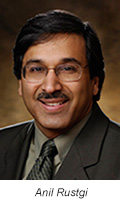 Anil K. Rustgi, chief of gastroenterology in the Perelman School of Medicine at the University of Pennsylvania, is once again the recipient of a Research Professor Award from the American Cancer Society (ACS), the organization’s most prestigious national award. It comes with a grant of five years to enable Dr. Rustgi to continue to provide leadership in his research on the genetics and biology of gastrointestinal cancers, including those arising from the colon and pancreas. His group has provided innovative scientific contributions in the development of 3D culture systems, mouse models and bridging the preclinical arena and clinical domains.
Anil K. Rustgi, chief of gastroenterology in the Perelman School of Medicine at the University of Pennsylvania, is once again the recipient of a Research Professor Award from the American Cancer Society (ACS), the organization’s most prestigious national award. It comes with a grant of five years to enable Dr. Rustgi to continue to provide leadership in his research on the genetics and biology of gastrointestinal cancers, including those arising from the colon and pancreas. His group has provided innovative scientific contributions in the development of 3D culture systems, mouse models and bridging the preclinical arena and clinical domains.
The Rustgi lab has long focused on how preneoplastic cells become neoplastic and the tumor microenvironment. With the ACS grant and other efforts, the lab is increasingly interested in GI cancer metastasis biology and avenues to target metastatic lesions in patients.
Dr. Rustgi is one of only 25 active ACS Research Professors in the country. He was first awarded an ACS professorship award in 2010. This is a one-time, five-year renewal.
 The Wharton School of the University of Pennsylvania is delighted to announce a $10 million commitment from Anne Welsh McNulty (Wharton MBA Class of 1979), which will drive the expansion and global reach of the current Wharton Leadership Program, building on a foundation of over 20 years of innovation and impact in leadership development. In recognition of this transformative gift, the Wharton Leadership Program will be renamed the Anne and John McNulty Leadership Program at the Wharton School.
The Wharton School of the University of Pennsylvania is delighted to announce a $10 million commitment from Anne Welsh McNulty (Wharton MBA Class of 1979), which will drive the expansion and global reach of the current Wharton Leadership Program, building on a foundation of over 20 years of innovation and impact in leadership development. In recognition of this transformative gift, the Wharton Leadership Program will be renamed the Anne and John McNulty Leadership Program at the Wharton School.
 Penn President Amy Gutmann and Provost Vincent Price announced the appointment of Aviv Nevo as the University of Pennsylvania’s seventeenth Penn Integrates Knowledge University Professor, effective July 1, 2016.
Penn President Amy Gutmann and Provost Vincent Price announced the appointment of Aviv Nevo as the University of Pennsylvania’s seventeenth Penn Integrates Knowledge University Professor, effective July 1, 2016.  Anil K. Rustgi, chief of gastroenterology in the Perelman School of Medicine at the University of Pennsylvania, is once again the recipient of a Research Professor Award from the American Cancer Society (ACS), the organization’s most prestigious national award. It comes with a grant of five years to enable Dr. Rustgi to continue to provide leadership in his research on the genetics and biology of gastrointestinal cancers, including those arising from the colon and pancreas. His group has provided innovative scientific contributions in the development of 3D culture systems, mouse models and bridging the preclinical arena and clinical domains.
Anil K. Rustgi, chief of gastroenterology in the Perelman School of Medicine at the University of Pennsylvania, is once again the recipient of a Research Professor Award from the American Cancer Society (ACS), the organization’s most prestigious national award. It comes with a grant of five years to enable Dr. Rustgi to continue to provide leadership in his research on the genetics and biology of gastrointestinal cancers, including those arising from the colon and pancreas. His group has provided innovative scientific contributions in the development of 3D culture systems, mouse models and bridging the preclinical arena and clinical domains.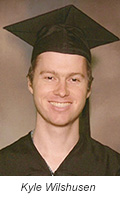 Stephen “Kyle” Wilshusen, a first-year Ph.D. student in computer science at Penn’s School of Engineering & Applied Science, died in Philadelphia on December 31. He was 25 years old.
Stephen “Kyle” Wilshusen, a first-year Ph.D. student in computer science at Penn’s School of Engineering & Applied Science, died in Philadelphia on December 31. He was 25 years old..jpg) Richard “Buz” Cooper, a hematologist/oncologist, founder of Penn’s Cancer Center and senior fellow at Penn’s Leonard Davis Institute (LDI) of Health Economics, died in New York City on January 15 from complications from pancreatic cancer. He was 79 years old.
Richard “Buz” Cooper, a hematologist/oncologist, founder of Penn’s Cancer Center and senior fellow at Penn’s Leonard Davis Institute (LDI) of Health Economics, died in New York City on January 15 from complications from pancreatic cancer. He was 79 years old..jpg) Walter Graham Arader, W’42, honorary Trustee of the University of Pennsylvania and former Pennsylvania state official, died at home in Radnor, Pennsylvania on January 18. He was 95 years old.
Walter Graham Arader, W’42, honorary Trustee of the University of Pennsylvania and former Pennsylvania state official, died at home in Radnor, Pennsylvania on January 18. He was 95 years old.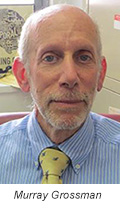 Murray Grossman, a professor of neurology in the Perelman School of Medicine at the University of Pennsylvania and director of Penn’s Frontotemporal Degeneration (FTD) Center, received the Legal Clinic for the Disabled’s Special Recognition Award, the organization’s highest honor, for his lifetime commitment to the disability community.
Murray Grossman, a professor of neurology in the Perelman School of Medicine at the University of Pennsylvania and director of Penn’s Frontotemporal Degeneration (FTD) Center, received the Legal Clinic for the Disabled’s Special Recognition Award, the organization’s highest honor, for his lifetime commitment to the disability community.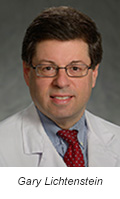 Penn Medicine’s Gary Lichtenstein, professor of medicine, and Gary Wu, the Ferdinand G. Weisbrod Professor in Gastroenterology, received 2015 Inflammatory Bowel Disease (IBD) Scientific Achievement Awards from the Crohn’s & Colitis Foundation of America (CCFA). The awards were given at the CCFA’s annual Advances in Inflammatory Bowel Diseases Conference in Orlando, Florida in December.
Penn Medicine’s Gary Lichtenstein, professor of medicine, and Gary Wu, the Ferdinand G. Weisbrod Professor in Gastroenterology, received 2015 Inflammatory Bowel Disease (IBD) Scientific Achievement Awards from the Crohn’s & Colitis Foundation of America (CCFA). The awards were given at the CCFA’s annual Advances in Inflammatory Bowel Diseases Conference in Orlando, Florida in December.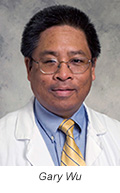 Dr. Wu won the Scientific Achievement in Basic IBD Research Award. He serves as associate chief for research in gastroenterology, co-director of the Penn-CHOP Microbiome Program and associate director of Penn’s Center for Molecular Studies in Digestive and Liver Disease. He is also an elected member of the American Society for Clinical Investigation and the Association of American Physicians.
Dr. Wu won the Scientific Achievement in Basic IBD Research Award. He serves as associate chief for research in gastroenterology, co-director of the Penn-CHOP Microbiome Program and associate director of Penn’s Center for Molecular Studies in Digestive and Liver Disease. He is also an elected member of the American Society for Clinical Investigation and the Association of American Physicians. Thomas Tartaron, associate professor of classical studies, won the Archaeological Institute of America’s (AIA) James R. Wiseman Book Award for best archaeological book of the year for Maritime Networks in the Mycenaean World, which takes a new look at maritime life among the Mycenaean Greeks from 1600-1100 B.C. While the Greeks’ long-distance trade with Egypt and Cyprus has been substantially studied, local maritime networks have been largely ignored and the locations of Mycenaean harbors are virtually unknown. In his book, Dr. Tartaron provides concepts and methods for recovering lost harbors and short-range maritime networks using information from ship construction, coastal paleoenvironments, oral histories, Homer and other ancient texts, archaeological fieldwork and network theory.
Thomas Tartaron, associate professor of classical studies, won the Archaeological Institute of America’s (AIA) James R. Wiseman Book Award for best archaeological book of the year for Maritime Networks in the Mycenaean World, which takes a new look at maritime life among the Mycenaean Greeks from 1600-1100 B.C. While the Greeks’ long-distance trade with Egypt and Cyprus has been substantially studied, local maritime networks have been largely ignored and the locations of Mycenaean harbors are virtually unknown. In his book, Dr. Tartaron provides concepts and methods for recovering lost harbors and short-range maritime networks using information from ship construction, coastal paleoenvironments, oral histories, Homer and other ancient texts, archaeological fieldwork and network theory.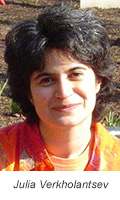 Julia Verkholantsev, associate professor of Slavic languages and literatures, received the Early Slavic Studies Association Book Prize for The Slavic Letters of St. Jerome: The History of the Legend and Its Legacy, or, How the Translator of the Vulgate Became an Apostle of the Slavs. The book explores the history of the medieval belief that fourth-century church father and biblical translator St. Jerome was a Slav and the inventor of the Slavic (Glagolitic) alphabet and Roman Slavonic rite, and investigates this belief’s spread from Dalmatia to Bohemia and Poland. Now largely forgotten, this legend was used by political and religious leaders from Rome to Bohemia and beyond for nearly 500 years until it was debunked in the 18th century. Dr. Verkholantsev examines the belief within the wider context of European historical and theological thought and shows that its effects reached far beyond the Slavic world.
Julia Verkholantsev, associate professor of Slavic languages and literatures, received the Early Slavic Studies Association Book Prize for The Slavic Letters of St. Jerome: The History of the Legend and Its Legacy, or, How the Translator of the Vulgate Became an Apostle of the Slavs. The book explores the history of the medieval belief that fourth-century church father and biblical translator St. Jerome was a Slav and the inventor of the Slavic (Glagolitic) alphabet and Roman Slavonic rite, and investigates this belief’s spread from Dalmatia to Bohemia and Poland. Now largely forgotten, this legend was used by political and religious leaders from Rome to Bohemia and beyond for nearly 500 years until it was debunked in the 18th century. Dr. Verkholantsev examines the belief within the wider context of European historical and theological thought and shows that its effects reached far beyond the Slavic world.